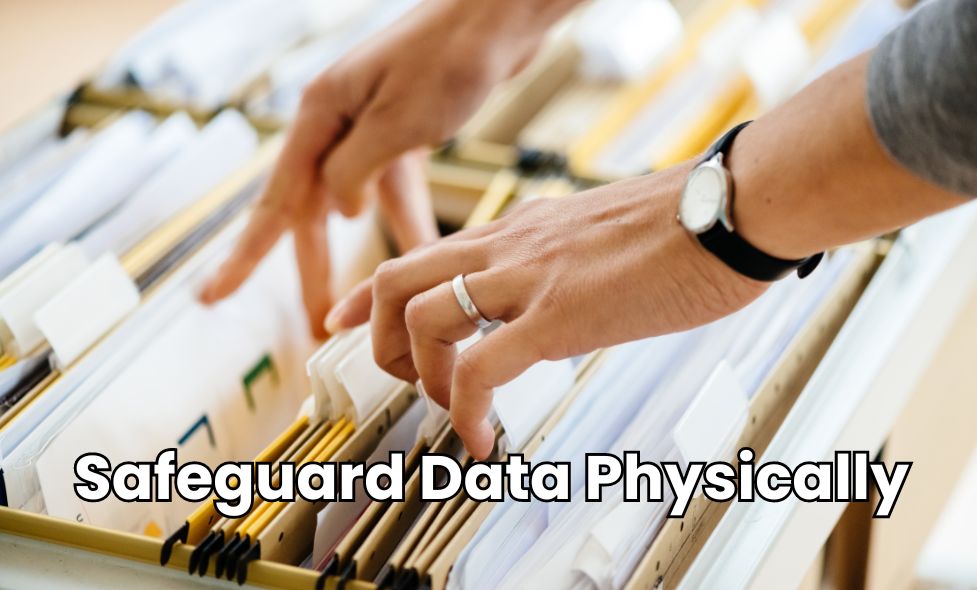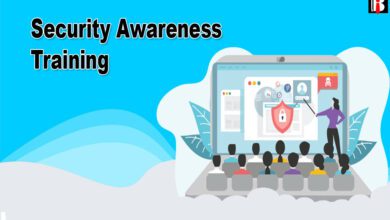Cybersecurity Measures to Protect Sensitive Business Data

Cybersecurity measures are like a shield that helps protect this valuable data. These measures include things like strong passwords, special locks for computer systems, and even teaching employees how to stay safe online. Imagine your business data as a treasure chest, and cybersecurity measures are the locks and guards that keep it safe from digital thieves. In this essay, we’ll explore these protective measures in simple terms, explaining why they are so important for keeping sensitive business data away from hackers and other bad actors.
Quick Shortcut Headlines
What is Data Security?
Data security encompasses safeguarding information against unauthorized access, theft, or harm. It can be likened to securing a personal diary with a lock to maintain confidentiality. In the digital sphere, data security relies on techniques and technology to shield digital assets, including passwords, credit card details, and personal information, from cybercriminals and hackers. These protective measures encompass tools like encryption, firewalls, and access controls, which serve as virtual safeguards for digital data. Upholding data security benefits individuals and organizations by shielding sensitive information, preserving privacy, nurturing user confidence, and thwarting potential harm from data breaches and cyberattacks.
Benefits of Robust Data Security
Robust data security offers several vital benefits. Firstly, it shields sensitive information from unauthorized access and theft, preserving individual and organizational privacy. Secondly, it enhances trust among users and clients, as they feel confident that their data is safe from cyber threats. Thirdly, data security helps prevent costly and reputation-damaging data breaches and cyberattacks. Fourthly, it ensures compliance with legal and regulatory requirements, avoiding penalties and legal issues. Furthermore, robust data security promotes business continuity by preventing disruptions caused by security incidents. Lastly, it safeguards intellectual property, trade secrets, and proprietary data, preserving a competitive edge.
How Does Web Application Security Work?
Web application security works by identifying and mitigating potential threats to websites and web-based services. It involves several key steps:
- Assessment: Security experts examine the web application to find vulnerabilities or weak points.
- Protection: Developers implement security measures like input validation, authentication, and encryption to prevent attacks.
- Monitoring: Automated tools and manual checks continuously monitor the application for unusual or malicious activities.
- Response: If a threat is detected, the system responds by blocking the attack, alerting administrators, and recording incident details.
- Updates: Regular updates and patches are applied to fix known vulnerabilities.
- Training: Users and developers are educated about security best practices.
By following these steps, web application security aims to reduce the risk of data breaches, unauthorized access, and other cyber threats, ensuring web services’ safe and reliable functioning.
Identify Sensitive Data and Classify It
To effectively secure your data, it’s vital to comprehend the kinds of information you have. Commence by having your security team thoroughly review your data storage locations and generate reports summarizing their discoveries. Afterward, classify this data according to its importance to your organization. Maintain this classification as data evolves or is employed differently over time. Furthermore, establish protocols to prevent users from inaccurately tagging data. Authorize only privileged users to alter the data’s classification, whether enhancing or reducing it. This strategy ensures the reliable protection of your valuable data assets.
Data Usage Policy is a Must-Have
A data usage policy is vital for organizations as it establishes clear guidelines for managing data. It is a rulebook that applies to everyone interacting with a company’s information. This policy spells out which data can be gathered, who has permission to access it, and the reasons behind its utilization. Additionally, Cybersecurity Measures addresses the measures to safeguard data, ensuring privacy and security. A well-crafted policy acts as a shield, thwarting misuse and unauthorized entry, thus minimizing the chances of data breaches or legal entanglements. It plays a pivotal role in transparency, ensuring that employees and stakeholders comprehend their data-related responsibilities.
Monitor Access to Sensitive Data
To monitor access to sensitive data is to vigilantly oversee who can view, utilize, or modify crucial information, ensuring its protection. It entails employing tools and systems that record when individuals log in, their actions with the data, and the detection of any irregular or unauthorized behavior. Cybersecurity Measures enable organizations to swiftly identify possible issues or security breaches, allowing them to take swift measures to safeguard the data. Think of it as akin to having security cameras in a highly secure vault, guaranteeing that only authorized individuals can enter and nothing suspicious occurs within, safeguarding valuable items against theft or harm.
Safeguard Data Physically

Physical data protection entails ensuring the safety of information stored on physical devices or in specific locations to shield it from harm or theft. It involves securing data storage tools such as servers, hard drives, or paper records within locked and controlled spaces, with access restricted solely to authorized individuals. Regular data backups are essential to mitigate loss from accidents or disasters. Moreover, physical security measures encompass fire-resistant cabinets, surveillance cameras, and alarms, guarding against physical risks like theft, fire, or natural calamities. Think of it as placing valuable documents in a locked, secure safe to safeguard them from harm or theft.
Use Endpoint Security Systems to Protect your Data
Utilizing endpoint security systems is an intelligent approach to protect your data. These systems are virtual protectors for individual devices, like computers or smartphones. They shield against cyber dangers like viruses, malware, and hackers that might compromise or harm your data. Endpoint security diligently monitors data as it enters or exits devices, ensuring its safety and integrity. It’s comparable to having a personal security guard for each device, guaranteeing that no malicious threats infiltrate, thus preserving the security of your valuable information. It is of utmost importance for businesses utlize Cybersecurity Measures in the digital age.
Document your Cybersecurity Policies
Documenting cybersecurity policies means writing the rules and instructions for safeguarding digital information. These documents clarify how to manage sensitive data, create strong passwords, and deal with security problems. They also define roles and the penalties for rule violations. When policies are written down, everyone in an organization understands what’s required, making it simpler to prevent cyberattacks and respond if they happen. Picture it as a guidebook for securing your digital “home,” providing clear directions on securing doors and windows to keep unwanted visitors out and ensure your digital space remains safe.
Conclusion
Data security is like building solid fortifications around your digital world. It involves creating clear rules (cybersecurity policies) for safeguarding valuable information, using tools (endpoint security systems) to defend against digital threats, and even protecting physical data storage, like guarding a treasure vault. Monitoring access to sensitive data is like having vigilant guards; identifying and classifying data helps prioritize its protection. All these measures aim to maintain privacy, prevent harm, and foster trust. Just as you’d lock your doors and windows to keep your home safe, data security is the digital equivalent, ensuring an online environment for individuals and organizations.


